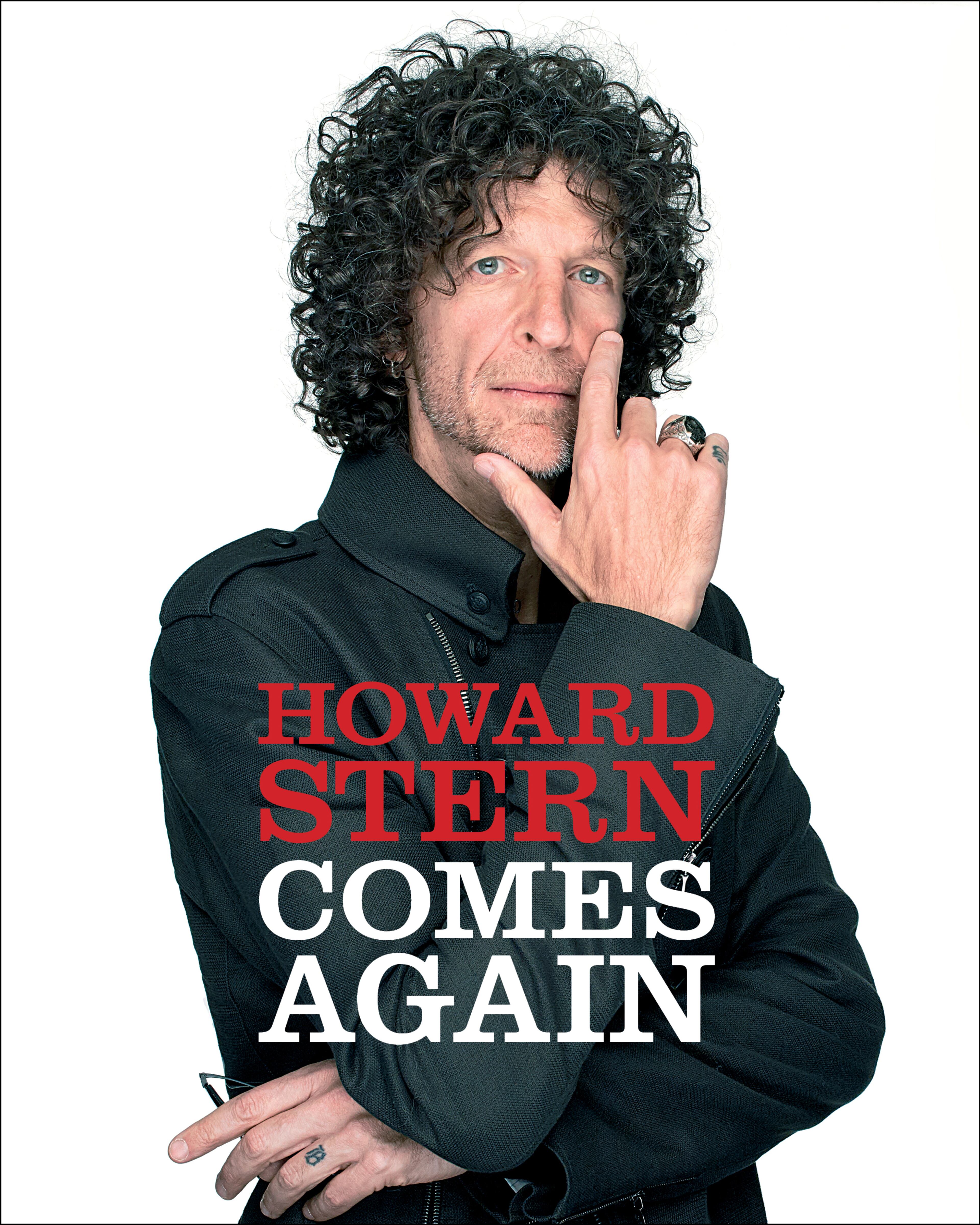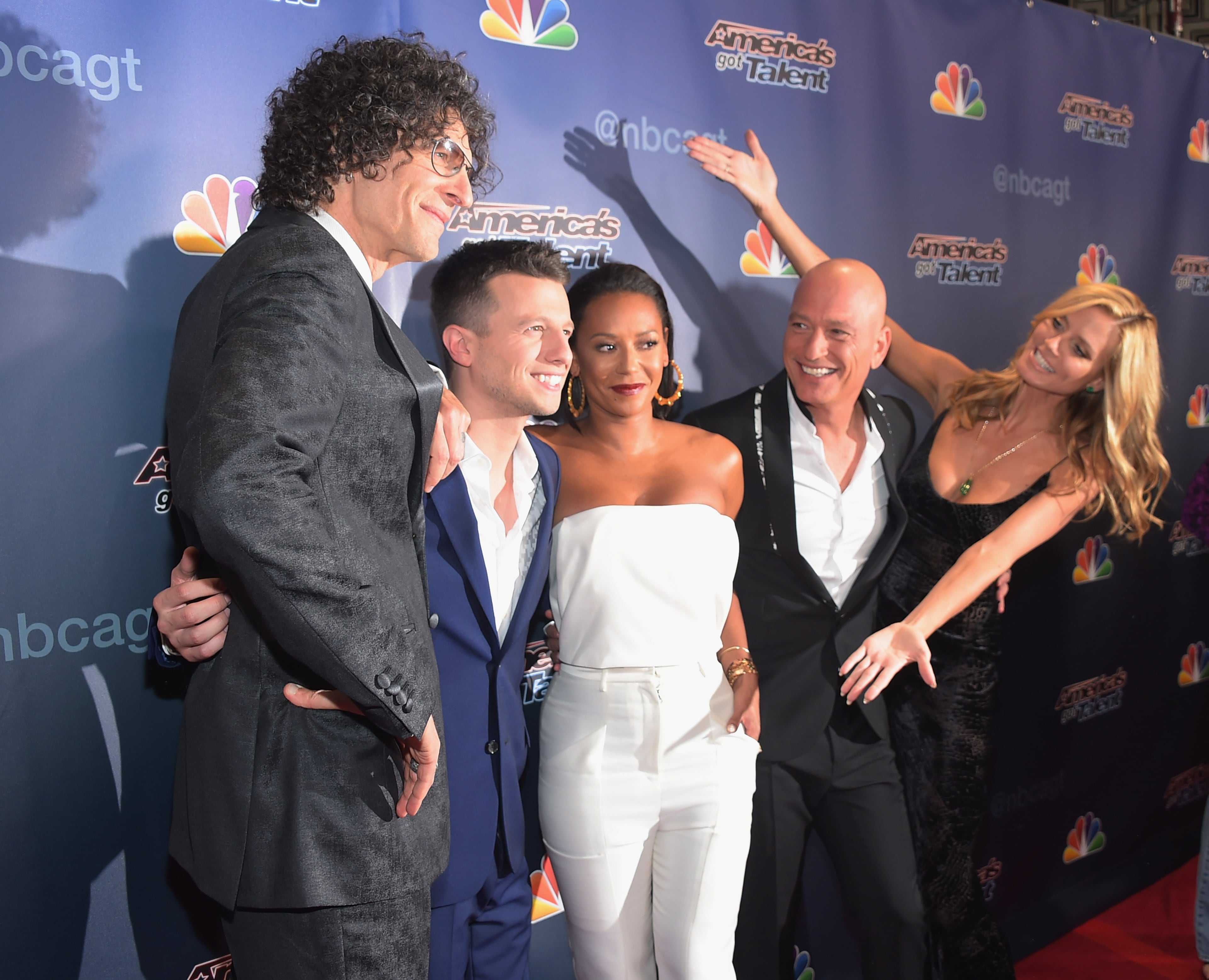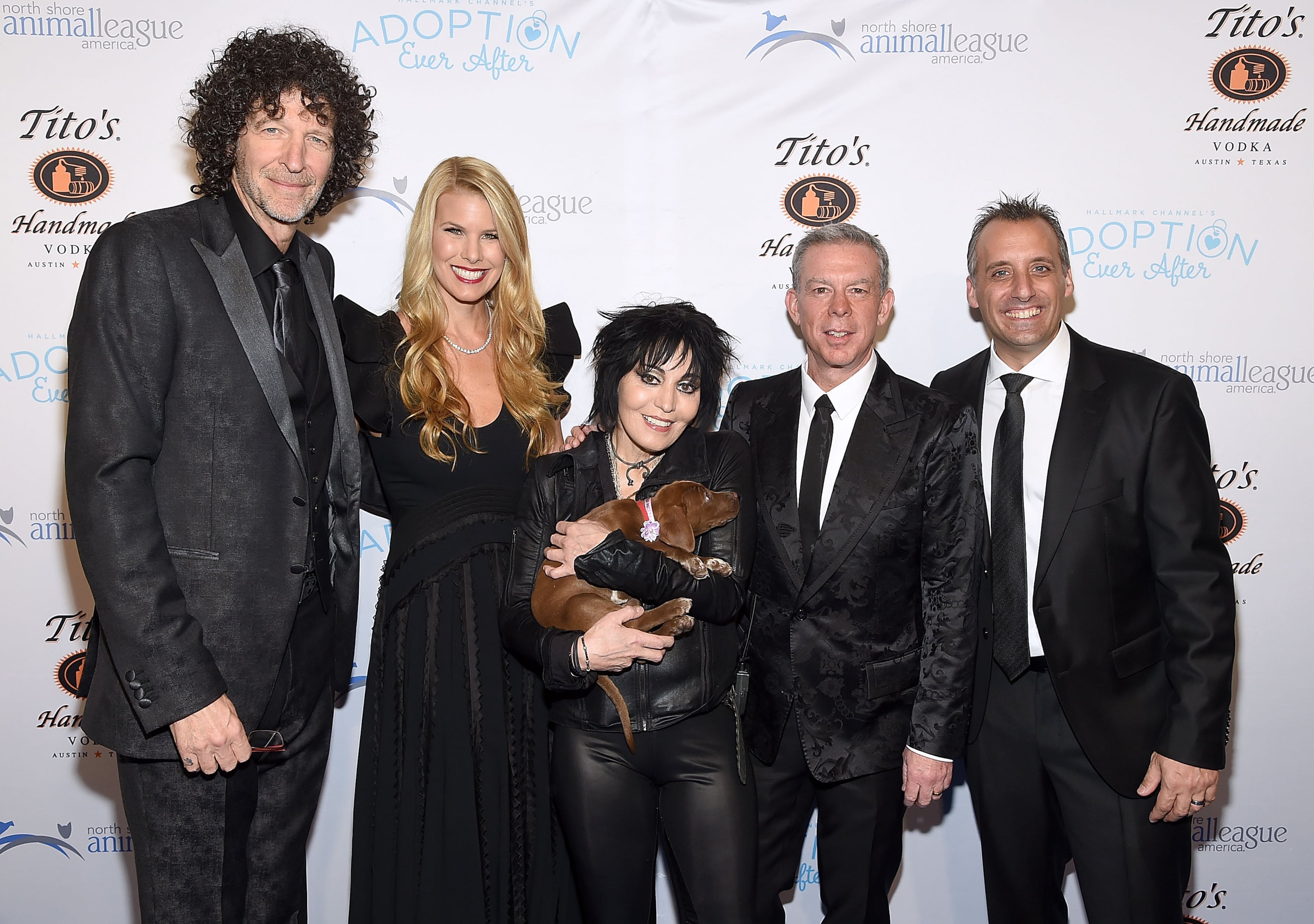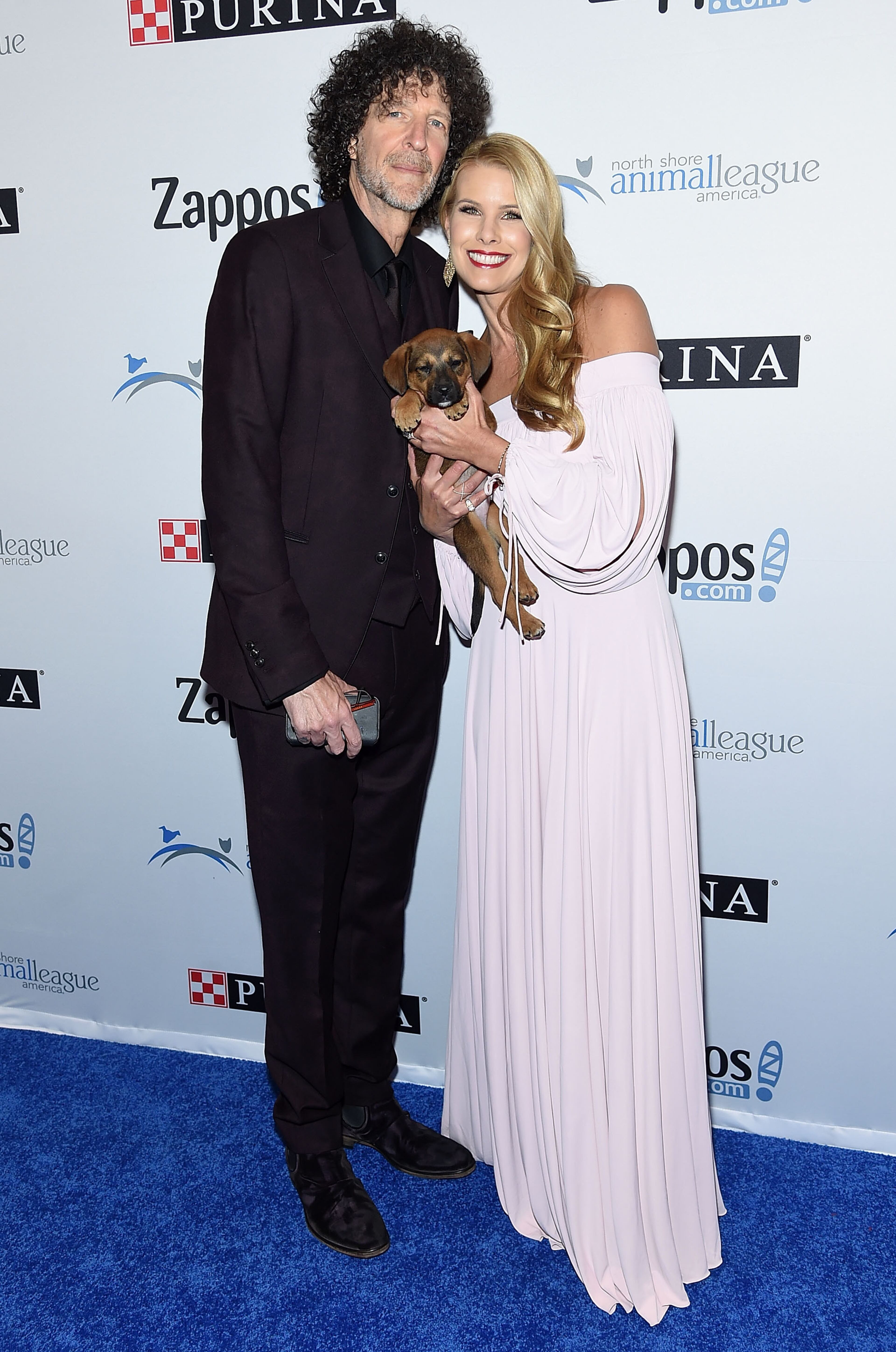Interview: Howard Stern elevates reputation with book featuring best celebrity talks

Originally posted Tuesday, May 14, 2019 by RODNEY HO/rho@ajc.com and MELISSA RUGGIERI/mruggieri@ajc.com on his AJC Radio & TV Talk blog
Howard Stern redefined what it means to be a radio personality.
Loud, crass, juvenile and superbly entertaining, he dubbed himself the “King of All Media,” developing a rabid fan base on FM radio while driving the Federal Communications Commission and puritanical pooh-bahs mad.
Stern’s move to satellite radio in 2006 shielded him from FCC fines while ironically making potty words and supposedly outrageous stunts passé and boring. After copious amounts of therapy and a more empathetic take on life after marrying his second wife Beth, Stern evolved into a surprisingly skilled interviewer of the stars.
In the 1980s and 1990s, Stern was known to harangue sexual details out of celebrities, asking outrageous questions for the sake of ratings. By the 2010s, he figured out that being on Sirius XM allowed him to do non-stop, commercial-free interviews for 60 to 90 minutes a pop, opening the door for more in-depth conversations addressing mental health issues, drugs, sex and religion.
In his first book in 24 years cheekily called “Howard Stern Comes Again” out May 14, Stern unveils a compendium of some of his best and most illuminating interviews ranging from Jon Stewart and Rosie O’Donnell, to Paul McCartney and Jay-Z. In essays before each interview, he provides insight into why that particular discussion was notable.

Paring all his interviews down took two years but even then, it ended up 550 pages.
“It’s my ‘War and Peace,’” Stern said in a recent phone interview from his home in the Hamptons. “The book kept expanding. They never gave me a page limit but I intuitively knew I better stop at this point or it’s going to get ridiculous.”
Stern feathers in bits of interviews he did with one of his top go-to guests over the years: Pres. Donald Trump. But Trump stopped calling when Stern declined to speak on his behalf at the Republican National Convention in 2016.
“I was shocked by his reaction when I told him I didn’t agree with him politically,” Stern said. “I stopped hearing from him. That seems crazy to me because I’ve been a Hillary Clinton supporter for years and years - and so was he! I never thought of him as a political guy.”
For years, publicists pointedly told clients to stay far, far away from Stern for good reason. But that viewpoint shifted as his interviews became more nuanced, less confrontational. Four years as a judge on NBC’s “America’s Got Talent” also softened his image.

The biggest turning point, Stern said in the book, was in 2015 when he convinced A-list actress Gwyneth Paltrow to sit in his New York City studio to discuss her acting career. She became so comfortable, she told Stern about oral sex with her husband as a way to end arguments. He said it became much easier to book big names after that.
Nowadays, if a celebrity doesn’t want to talk about a particular topic, Stern will no longer harass them. Instead, he’ll move on and find other interesting areas to address.
In fact, he said he was able to humanize many celebrities who his fans might have derided such as Lady Gaga. “I had hardcore guys say, ‘I don’t like Lady Gaga.” Then she’s delightful and shares her life with us. There was this metamorphosis. Suddenly, this guy would be melted and say, ‘I really like her! I’m going to buy her record!’”
He felt he could have done the same with Clinton before the 2016 election but she refused to take the risk and talk to Stern.
“She could have slayed that evil dragon that is her reputation for being cold and not genuine to so many people,” Stern said. “She could have come across in a great way. That’s a great lesson. We can’t tighten up to the point in life that we cant’ do anything. She thought she had it in the bag and she played it safe.”
Stern, as his dedicated listeners know, is notoriously neurotic and a bit of a control freak. Doing press is not his favorite activity. Yet he cared enough about this book to set aside time to talk to a whopping 170 different media outlets, from “Good Morning America” to the AJC.
“I honestly was never going to write a book again,” Stern said. “It started out around the interviews. Then what ended up happening, it wasn’t just about the people I interviewed, but it also became about my change and where I wanted to go in life.”
He added, “Through these interviews, I think you learn more about me than even about the person.”
Indeed, at 65, Stern is at a point in his life where his legacy is more top of mind than copulation.
This book is part of that legacy and was facilitated in part by a health scare.
Stern, who never misses a show, suddenly cancelled his May 10, 2017 show. Fans, aware of his neurotic habits, flooded the Web with speculation about his absence. The following Monday, he said it was just the flu.
Many stalwart listeners suspected his curt explanation wasn’t 100% honest, and Stern reveals truth in early in the book: a doctor found a spot on his kidney and a specialist told him there was a 90 percent chance it was cancer.
Stern, who had always prided himself on his robust health and lustrous dark, curly mane, freaked out and quickly booked an afternoon surgery appointment to have the spot removed. At the last second, the doctor offered to perform the procedure in the morning instead.
He could have retained his original appointment in secrecy but his “paranoia” jolted him to take the morning slot and skip his show.
"I know the morning is the only time I'm useful," Stern said. "I was thinking to myself, if the doctor wants to operate in the morning, that's probably when he's the most awake!"
Considering Stern is beloved by his audience because of his unfailing honesty, did he feel guilty about lying to them?
“Yes,” he answered before the question was fully asked.
“Honestly, it’s admitting my own mortality,” he continued. “It’s a really hard thing for me to confront.”
When his on-air partner Robin Quivers suffered from endometrial cancer in 2012 and 2013, he encouraged her to keep it quiet.
“It’s because people call in and start to fill your head with bulls*** science,” Stern said. “It’s not real science and they start to talk to you about, ‘Oh yeah, I had a cousin, they told him they’re gonna remove the cancer from his kidney and then he died a year later.’”
He said if he had said anything on the air, he would have had a hard time dealing with that. “I couldn’t have dealt with all of the nudniks who suddenly become a doctor on the phone and tell you these horror stories. And it does disturb me that I couldn’t come clean with the audience about it and it does bother me because I do like being honest with the audience. But I couldn’t deal with it.”
Ultimately, it was a false alarm. All he had was a non-cancerous cyst.
Acquired wisdom and time have sandpapered away Stern’s narcissistic win-at-all-costs approach to life. But so have cats.
Stern dedicates the book to all the animals he and his wife saved over the years – they’ve fostered more than 800 cats in the 11 years since they married. He closes the book with a portrait he painted of Sophia, one of the felines the couple adopted. (Yes, Stern’s primary hobby now is painting.)

He said it took a rescue cat named Leon Bear to truly accept affection from another living being.
“When I wrote the thing about my cat Leon, it was almost like I needed to practice being a human being with this cat, who was forgiving, wasn’t too judgmental,” Stern said. “I cried when that cat died and it was like a big deal for me to open up that way.”
Stern said his relationship with Leon also motivated him to write this book: “I wanted to offer this to a lot of people who might be moved by my own journey, who might be considering doing therapy. Maybe I could be seen as a proponent for this kind of change and hard work, because it’s a b**** to sit down and take a hard look at yourself.”

ADDENDUM: Melissa and I had 13 minutes with him, which is 13 more minutes than I ever expected to get in my lifetime, to be honest. If you want a more in-depth interview, the New York Times clearly had him for far longer.



